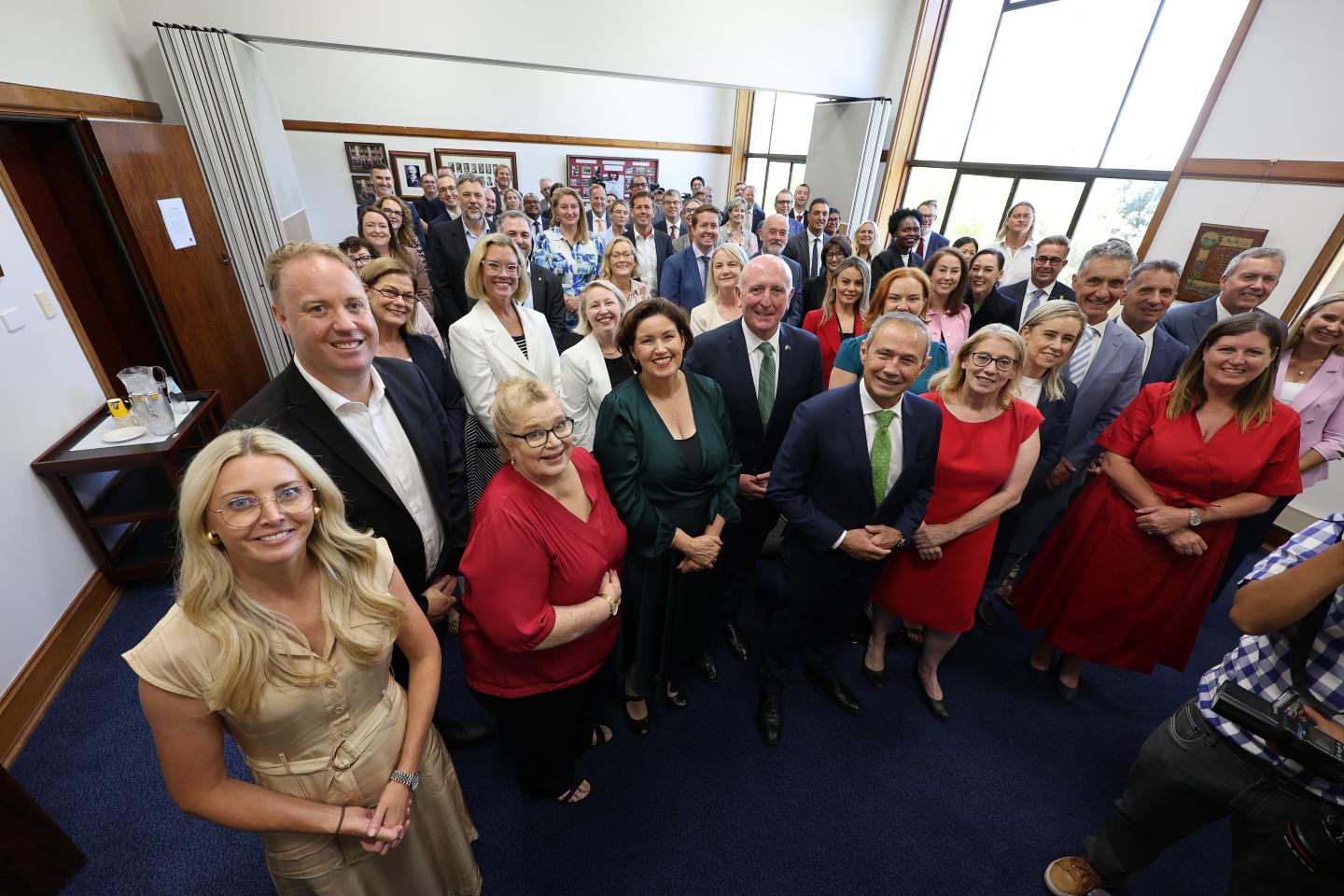Roger Cook’s name has been a regular feature on the annual list of Western Australia’s most influential business and political players published by Business News.


Roger Cook’s name has been a regular feature on the annual list of Western Australia’s most influential business and political players published by Business News.
While he is obviously influential, Mr Cook has been something of a curious case.
When the Most Influential list was compiled in March 2023, he took a position towards the front of a Labor bus fuelled by the incredible popularity of Mark McGowan.
At that stage, Mr Cook was the state’s deputy premier, having held the health portfolio during the height of the Covid pandemic and ranking alongside Mr McGowan’s chief of staff, Dan Pastorelli, and his senior WA Labor colleague Rita Saffioti.
All were in the shadows of Mr McGowan, however.
Within two months, Mr McGowan resigned, and after some factional tussling and a much-publicised backroom deal with the now-Treasurer Rita Saffioti and Australian Manufacturing Workers Union-aligned senior minister Stephen Dawson, Mr Cook became premier.
He was not elected by the public and his own faction had initially favoured Amber-Jade Sanderson for the top job: two caveats that provided some colour to the debate around Mr Cook.
When Business News published a new Most Influential ranking in its Book of Lists in December last year, the premier was not placed at the centre of power in WA.
Four businesspeople – Andrew Forrest, Gina Rinehart, Kerry Stokes and Meg O’Neill – were given that distinction.
On March 8 2025, Mr Cook was resoundingly elected by the public as the state’s 31st premier.
That election result shifts Mr Cook back into the centre of influence and comes with change in the halls at Dumas House.
A long-time bureaucrat who was chief of staff to Mr Cook and Mr McGowan, Mr Pastorelli is now a parliamentary secretary to the premier and one among several new faces in a refreshed parliamentary party room.
His long history as a trusted figure in the highest offices at Dumas House, combined with his new job title, mean he does not leave the list (and indeed holds a place above a number of junior ministers).
In the coveted chief of staff role vacated by Mr Pastorelli is Daniel Smith, the founder of ReGen Strategic, who sold out of that company late last year in preparation for his new appointment.
He joins the list because of his new position.
A number of senior staffers within the public service ranks will also be leaving this year, led by former Department of Premier and Cabinet director general Emily Roper, who has already both departed the public service and the Most Influential list.
Deputy chief of staff Veronica Jeffrey, policy director Dave Coggin, senior adviser Keiran Murphy, and deputy media director Mark Scott will also leave their roles as the party embarks on a new era.
Regeneration is also evident within the refreshed Cook cabinet, though not to the level of his predecessor.
Mr McGowan’s move to dump former housing and fisheries minister Peter Tinley after the 2021 state election was a power move designed to renew the cabinet.
Renewal was delivered this time around by Mr Cook’s decision to expand his cabinet, with three new members – Jess Stojkovski, Matt Swinbourn and Meredith Hammat – handed roles.
Plenty has changed, regardless.
Deputy Premier and Treasurer Rita Saffioti has traded tourism for sport and recreation.
Amber-Jade Sanderson has handed off the health reins and assumed the critical portfolios of energy, decarbonisation, manufacturing, and skills and TAFE.
She will also be minister for the Pilbara; enough to move her closer to the centre of influence than 12 months ago.
John Carey retained housing, lands and planning, but added health infrastructure to his responsibilities (carved out of Ms Sanderson’s previous health portfolio).
It moves Mr Carey closer to the centre of influence this time around while reducing the scale of the responsibility handed to first-time cabinet minister Ms Hammat in the health portfolio.
Ms Hammat’s slimmed-down portfolio, even with preventative health (Sabine Winton) and health infrastructure (Mr Carey) removed, remains among the toughest on offer for a cabinet minister, and is enough to place her on the influential list for the first time.
Mines and Petroleum, Finance, Electoral Affairs and Goldfields Esperance Minister David Michael also enters the Most Influential list, having been singled out by Mr Cook as one of five senior ministers he’ll be leaning on in the term ahead.
“[Rita Saffioti and Amber-Jade Sanderson] are my two most senior ministers … along with David Michael, who’s got a bit of extra work as well,” Mr Cook said when announcing his cabinet.
“Stephen Dawson is going to be busy, and of course, as leader in the upper house he’ll have his work cut out for him.
“They’re the ones I expect to deliver for the government.”
On the other side of the parliament is a Liberal Party of WA still licking the wounds opened in the 2021 electoral bloodbath.
At time of writing, the Liberals had won seven of 59 seats in the lower house and Basil Zempilas had just been confirmed as the party’s next leader.
It came after former leader, Libby Mettam, on March 21, announced she would not contest the leadership and instead would seek to be deputy.
As a result, she drops off the list in favour of Liberal Party powerbroker Nick Goiran. The leadership ‘vote’ was no contest, with Mr Zempilas the only candidate to nominate for the position.
The upper house will make for compelling watching in this term of parliament. Labor no longer has an absolute majority and will need to deal with the Greens WA to pass legislation: a position of influence the party’s leader, Brad Pettitt, has pledged to use to push its agenda on key legislation.
With that promise, Dr Pettitt features in the Most Influential list for the first time.

Business
In business, it seems, the more things change the more they remain the same.
In compiling this year’s Most Influential list, Business News revisited the list published in the 2011 Book of Lists: a ranking of those who had influence over the course of the previous calendar year.
Fifteen years since that list was published, there remains substantial overlap.
Richard Goyder, Andrew Forrest, Michael Chaney and Kerry Stokes all feature among the top power players in the state, as they did when ranked by Business News in 2010.
Mr Forrest’s influence can only have grown over that time.
The Fortescue founder’s pockets run deep, and the diverse private business empire he has built alongside Nicola Forrest – Tattarang – spans agriculture, defence, clothing, renewables, rugby, property, hospitality and mining, which gives him substantial influence.
That’s before factoring in philanthropic arm, Minderoo.
Such is his influence, Mr Forrest has links to a number of other figures on the list: including Nicola, Fortescue deputy chair and Greatland Gold chair Mark Barnaba, and Tattarang and Minderoo CEO John Hartman.
As chair and owner of Australian Capital Equity, Mr Stokes’ influence comes primarily from his significant stake in Seven West Media, the publisher of The West Australian.
Back in 2011, Mr Stokes orchestrated West Australian Newspaper Holdings’ $4.1 billion acquisition of Seven Media Group, creating what is now known as Seven West Media.
The value of the consolidated business has shrunk considerably.
In 2025, the combined entity has a market capitalisation of just over $220 million.
Mr Stokes and son Ryan own a combined 51 per cent of SGH, which owns 40.2 per cent of SWM, as well as Westrac, Boral, Coates and key stakes in several other diversified businesses.
Ryan Stokes is on the list in his own right.
Mr Goyder remains on the business list, but not in a position of central influence as he was in 2010.
Mark Barnaba, John Poynton, Gina Rinehart, Dale Alcock and Nigel Satterley were all featured as business influencers in 2010 and remain in place a full 15 years later.
Their presence means almost 30 per cent of the business side of the list is the same as it was a decade and a half ago.
The same cannot be said for politics, where influence is significant but fleeting.
Colin Barnett, Brendon Grylls, Peter Conran, Brian Pontifex, Tim Marney, John Day and Christian Porter were regarded the most influential in the government sphere at the time.












